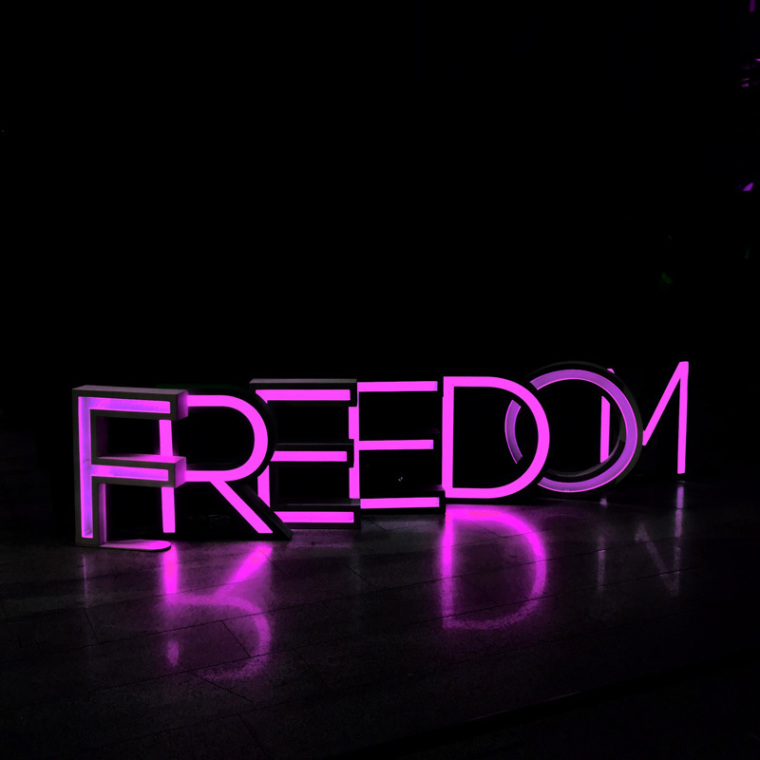
As a hug, a handshake, or a meal became so infectious they blurred the lines between life and death, nations began to panic. The division between ‘essential’ and ‘non-essential’ became synonymous between ‘legal’ and ‘illegal’. And the church was deemed ‘non-essential’.
What ensued played out differently across the world. In the US, a pastor was arrested for holding a service, a governor ordered a ban on church gatherings requiring judicial intervention, and President Trump eventually declared churches ‘essential’ only after liquor stores were given the same treatment.
Other nations were less dramatic. Churches may have been closed, but no one cried foul at losing religious freedom. Yet, for many watching from afar, the Shakespearean drama which ensued in the United States unearthed an entrenched idolatry.
For the love of freedom
Freedom. Let the world roll in your mind as you consider everything freedom allows you to do. We live in a society where security is traded for liberty. We enjoy the taste of freedom, with notable limitations to keep ourselves safe. It is an imperfect balance, but we accept it, embrace it, and defend it on foreign shores against those who disagree with our version of ‘freedom’.
We have become so accustomed to freedom, that the thought of a pandemic requiring churches to close, seems preposterous. A form of religious intolerance, persecution, and a threat to our very essence as Christians.
Article after article beg us: Is it sinful to attend church online? Is it really preaching if the physical pews are empty? Should this divide the church?
These questions, stripped back, all point to an absence of physical freedom, yet we have painted it as a loss of Christian purpose and identity, to the point of calling it sin. Yet, the very sin we think we are committing by not going to church, overshadows the very idolatry of freedom we so cherish.
Obey your Government
The modern experiment with liberal democracy is arguably unparalleled in history. The power of the informed citizen to safely and assuredly elect the very individuals dividing the lines of legality is incredibly novel in not simply the history of the world, but notably the history of the church.
In a tapestry of tyranny, monarchies, autocratic societies, and totalitarian theocracies, the church’s historical relationship with the powers that be has been uncomfortable at best.
Yet, many of us find ourselves in an era where we not only elect our leaders, but we are also guaranteed the constitutional freedom of our faith irrespective of which political party comes to power.
For the vast majority of us today, the thought of not being allowed to attend church is foreign enough to result in civil disobedience in the mist of a pandemic.
Yet Paul writes simply in Romans chapter 13, verses 1-2, “Let everyone be subject to the governing authorities, for there is no authority except that which God has established. The authorities that exist have been established by God. Consequently, whoever rebels against the authority is rebelling against what God has instituted, and those who do so will bring judgement on themselves.”
At a time when Paul was in prison by the powers that be and Christianity was still considered a Jewish cult, he writes these unfathomable words. The questions it raises provide no simple answer, but the very thing they do not do is allow the exercise of personal freedom to trump government authority.
Tempting God
There are many exceptions we could draw to this, and there many Christians around the world facing daily persecution by their home governments. I used to live in one of those countries. THAT is an issue of religious freedom that we should pray earnestly for our brothers and sisters for.
When it comes to a pandemic, let us not forget Martin Luther’s words, when he spoke of the role of the pastor during the Black Death. Challenging notions that the plague they faced was a result of divine judgement and medical treatment was unbiblical, Luther responds,
“Very well, by God’s decree the enemy has sent us poison and deadly offal. Therefore I shall ask God mercifully to protect us. Then I shall fumigate my house, help purify the air, administer medicine, and take it.
I shall avoid persons and places where my presence is not needed in order not to become contaminated and thus perchance infect and pollute others, and so cause their death as a result of my negligence.
If God should wish to take me, he will surely find me, and I have done what he has expected of me and so I am not responsible for either my own death or the death of others. If my neighbour needs me, however, I shall not avoid place or person but will go freely, as stated above.
See, this is such a God-fearing faith because it is neither brash nor foolhardy and does not tempt God.”
Luther reminds us that the Christian disposition to such a crisis is very simple, and is no different from any other: consider no other above yourself, always put the welfare of others first, honour Christ in all. Let us not think our personal freedoms superior to such a calling.

Hailing from North Auckland, Blake Gardiner sounds American, looks Swedish, but grew up in Laos. As an introvert, Blake lives life on the edge by socialising. When he isn’t putting his life at such risk, he enjoys reading theology and debating whether Interstellar is truly the greatest movie of all time. Blake is married to fellow young writer Jessica Gardiner.